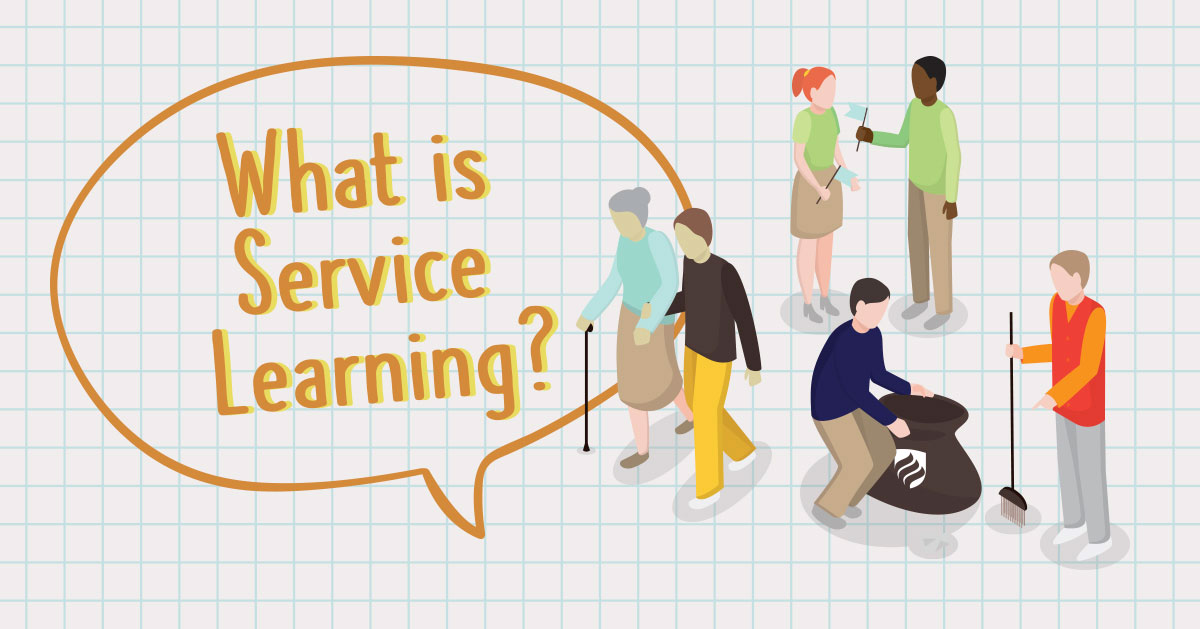Benefits of Service Learning
Service learning is a powerful educational approach that combines classroom instruction with meaningful community service. It provides students with the opportunity to apply their academic knowledge and skills to real-life situations while making a positive impact on society. In this article, we will explore the numerous benefits of service learning and why it is an essential component of a well-rounded education.
Enhanced Learning Experience
Service learning goes beyond traditional classroom learning by immersing students in hands-on experiences. It allows them to connect theoretical concepts with practical applications, leading to a deeper understanding of the subject matter. By actively engaging in service activities, students can develop critical thinking, problem-solving, and communication skills that are crucial for their personal and professional growth.
Personal Development
Engaging in service learning projects can have a profound impact on students’ personal development. It fosters empathy, compassion, and a sense of social responsibility. Through their interactions with individuals from diverse backgrounds, students gain a broader perspective of the world and become more culturally aware. Service learning also helps students develop leadership skills, as they often take on roles of responsibility within their projects.
Community Impact
One of the key benefits of service learning is the positive impact it has on the community. By actively participating in service projects, students contribute to addressing community needs and social issues. Whether it’s volunteering at a local shelter, organizing environmental cleanups, or tutoring underprivileged children, service learning allows students to make a tangible difference in the lives of others. This not only benefits the community but also instills a sense of fulfillment and purpose in the students themselves.
Career Readiness
Service learning equips students with essential skills and experiences that prepare them for future careers. Through their involvement in service projects, students gain practical knowledge, develop teamwork abilities, and enhance their problem-solving skills. These attributes are highly valued by employers and can give students a competitive edge in the job market. Additionally, service learning provides opportunities for networking and building connections with professionals in various fields.
Academic Achievement
Research has shown that service learning can positively impact academic achievement. By applying classroom knowledge to real-world situations, students develop a deeper understanding of the subject matter. This hands-on approach to learning enhances retention and improves critical thinking skills. Service learning also promotes active engagement, which can lead to increased motivation and a greater sense of ownership over the learning process.

Service learning offers numerous benefits to students, communities, and society as a whole. It enhances the learning experience, fosters personal development, makes a positive impact on the community, prepares students for future careers, and improves academic achievement. By incorporating service learning into educational programs, we can empower students to become active, engaged citizens who are equipped with the skills and knowledge to create a better world.
Frequently Asked Questions about the Benefits of Service Learning
1. What is service learning?
Service learning is an educational approach that combines academic instruction with community service to address community needs and foster civic engagement.
2. What are the benefits of service learning?
Service learning provides numerous benefits, including:
Enhanced academic learning and critical thinking skills
Improved understanding of social issues and community needs
Development of empathy, compassion, and cultural competence
Opportunities for personal growth and self-reflection
Building strong connections with the community
3. How does service learning enhance academic learning?
Service learning integrates real-world experiences into the curriculum, allowing students to apply their knowledge and skills to solve practical problems. This hands-on approach deepens understanding and promotes active learning.
4. Can service-learning improve students’ social skills?
Absolutely! Through service learning, students interact with diverse individuals and communities, developing communication, teamwork, and leadership skills. They learn to collaborate effectively and appreciate different perspectives.
5. Does service learning promote civic engagement?
Yes, service learning plays a crucial role in fostering civic engagement. By actively participating in community service, students become more aware of social issues and are motivated to take action to create positive change in their communities.
6. How does service learning contribute to personal growth?
Service learning encourages self-reflection and personal growth by exposing students to new experiences, challenges, and perspectives. It helps them develop a sense of purpose, empathy, and a lifelong commitment to serving others.
7. Can service learning help students explore future career paths?
Absolutely! Service learning provides students with opportunities to explore various career fields and gain practical skills and knowledge. It helps them make informed decisions about their future by connecting academic learning with real-world applications.
8. How does service learning contribute to community development?
Service learning actively involves students in addressing community needs, leading to positive community development. By working on meaningful projects, students contribute to improving the quality of life for individuals and communities.
9. Are there any long-term benefits of service learning?
Yes, service learning has long-term benefits. It instills a sense of civic responsibility, cultivates lifelong service habits, and prepares students to become active and engaged citizens who contribute positively to society.
10. How can educators incorporate service learning into their curriculum?
Educators can incorporate service learning by designing projects that align with the curriculum and community needs. They can collaborate with community organizations, provide reflection activities, and assess students’ learning outcomes based on their service experiences.




